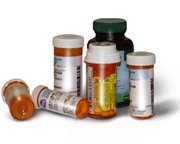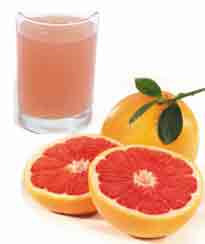Vitamins and Minerals
Vitamins for Health and Vitality
age-well.org > Vitamins and Minerals – Introduction
Diet should provide most of our vitamin needs

For most people, a varied diet rich in vegetables and fruits will give most of the vitamins and minerals that they need. A daily multivitamin tablet will help to ensure that there is no deficiency for people who may not be getting adequate nutrients from their diet. People who are lactose resistant and worried that they are not getting enough calcium and postmenopausal women should consider taking additional calcium. If they do not get enough sunshine, it will be necessary to supplement this with a vitamin D tablet or take calcium enriched with vitamin D. Older people, in particular need to ensure that they are getting enough B12, calcium and Vitamin D.
The signs and symptoms of a vitamin and mineral deficiency are often non-specific and cannot be interpreted correctly by an untrained person. These symptoms include fatigue, skin rashes, poor concentration, and sores on the lips or tongue and might be an indication of another underlying problem. Some medical conditions can make you more likely to develop a vitamin or mineral deficiency and, knowing your history, your doctor will be monitoring you for any signs of these.
For more information about deficiency linked to specific vitamins please go to the Overview of Vitamins and the Overview of Minerals and read up on the different vitamins and minerals, their sources and symptoms of deficiency and overdose.

Dairy Products are one of the major sources of calcium
In order to avoid age-related problems, such as osteoporosis, it is vital to eat enough calcium rich foods, such as dairy products. At the same time, these foods can encourage weight gain and it is advisable to change to low-fat dairy products as the fat contained in dairy products contains the type of chlorestoral which can lead to heart problems if consumed in large quantities.
Specific deficiencies of many nutrients can be diagnosed with blood or urine tests. For vitamin D and vitamin B12, blood tests are generally pretty accurate. There are also tests that can indicate whether or not a patient is getting adequate amounts of a nutrient, but the results of these tests can sometimes be hard to interpret. On-going research will address these issues and make it easier to detect vitamin deficiencies before they develop into more serious conditions.
Vitamins and minerals can react with prescription drugs

There are numerous drug-nutrient interactions and patients are advised to read the notice on any prescribed medicine and get advice before taking dietary supplements. The body can only synthesize some vitamins or minerals if another nutrient is available in adequate quantities. Calcium can only be absorbed if there is adequate Vitamin D, for example and anaemia cannot be treated by iron supplements on their own – normally the patient will also be prescribed Vitamin C or ascorbic acid as this vitamin helps the body to absorb iron.

In addition, grapefruit or grapefruit juice may alter metabolism of some drugs and patients are often advised to avoid this fruit when taking certain medications. Normally it is better to use the same pharmacy for your prescription drugs as many now have data-bases which keep an account of all the drugs you are taking and will alert the pharmacist if there are any adverse effects which you should be aware of.
Information regarding these interactions is also available on www.nutrition.gov.
There is constantly new research into vitamin needs and deficiency. Dietary Reference Intakes (DRI) incorporate expected changes in absorption with aging, as well as changing needs for vitamins and minerals throughout the lifespan.
New evidence about deficiency of vitamin B12 in older persons has resulted in a specific B12 recommendation, not just the amount but also the form of B12 most likely to be absorbed to prevent deficiency.
Too many Vitamins and Minerals can be harmful
Although Vitamins and Minerals are necessary for health, certain vitamins can create problems if taken in excess.
Many vitamins and minerals are excreted from the body if we take more than is needed, but others cannot be excreted and absorbing too many might be harmful.
In the next pages we will endeavour to give you further information about vitamins and minerals and in which foods you can find them, the main ailments caused by deficiencies, which nutrients can be harmful if taken in excess and the toxic effects of over dosage.
A brief A-Z of Vitamins, with links to more detailed information
age-well.org > Vitamins and Minerals – Introduction
TOP of VITAMINS and MINERALS
HOME to Age-well
Translate this Site
Search This Site
Loading
Subscribe to E-Zine
Support this Site
|
Holiday SpecialsFor Holiday Specials at Amazon, Click Here
|






New! Comments
Have your say about what you just read! Leave me a comment in the box below.